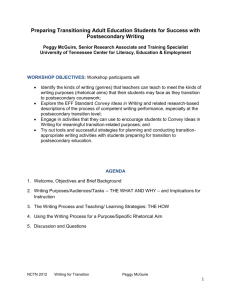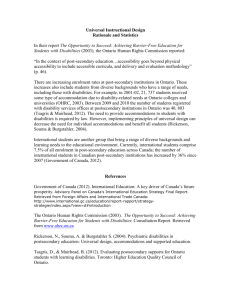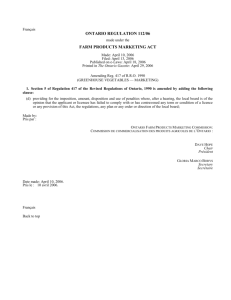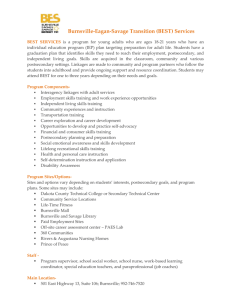(De)Legitimizing Francophone Minority Linguistic And Cultural Identity
advertisement
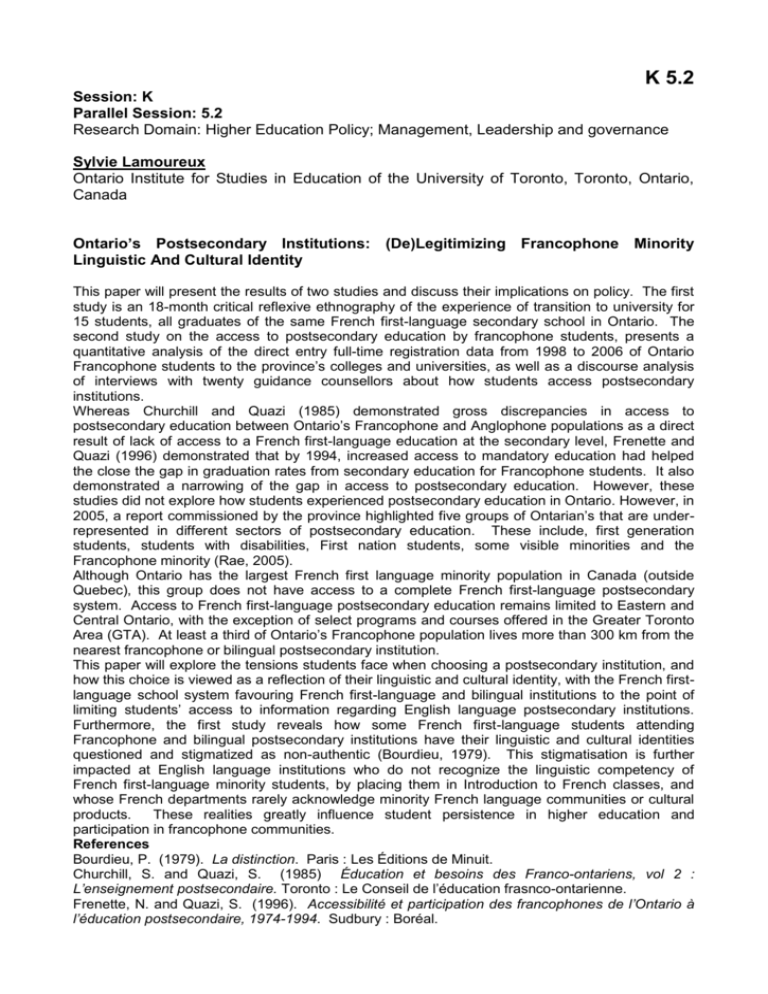
K 5.2 Session: K Parallel Session: 5.2 Research Domain: Higher Education Policy; Management, Leadership and governance Sylvie Lamoureux Ontario Institute for Studies in Education of the University of Toronto, Toronto, Ontario, Canada Ontario’s Postsecondary Institutions: (De)Legitimizing Francophone Minority Linguistic And Cultural Identity This paper will present the results of two studies and discuss their implications on policy. The first study is an 18-month critical reflexive ethnography of the experience of transition to university for 15 students, all graduates of the same French first-language secondary school in Ontario. The second study on the access to postsecondary education by francophone students, presents a quantitative analysis of the direct entry full-time registration data from 1998 to 2006 of Ontario Francophone students to the province’s colleges and universities, as well as a discourse analysis of interviews with twenty guidance counsellors about how students access postsecondary institutions. Whereas Churchill and Quazi (1985) demonstrated gross discrepancies in access to postsecondary education between Ontario’s Francophone and Anglophone populations as a direct result of lack of access to a French first-language education at the secondary level, Frenette and Quazi (1996) demonstrated that by 1994, increased access to mandatory education had helped the close the gap in graduation rates from secondary education for Francophone students. It also demonstrated a narrowing of the gap in access to postsecondary education. However, these studies did not explore how students experienced postsecondary education in Ontario. However, in 2005, a report commissioned by the province highlighted five groups of Ontarian’s that are underrepresented in different sectors of postsecondary education. These include, first generation students, students with disabilities, First nation students, some visible minorities and the Francophone minority (Rae, 2005). Although Ontario has the largest French first language minority population in Canada (outside Quebec), this group does not have access to a complete French first-language postsecondary system. Access to French first-language postsecondary education remains limited to Eastern and Central Ontario, with the exception of select programs and courses offered in the Greater Toronto Area (GTA). At least a third of Ontario’s Francophone population lives more than 300 km from the nearest francophone or bilingual postsecondary institution. This paper will explore the tensions students face when choosing a postsecondary institution, and how this choice is viewed as a reflection of their linguistic and cultural identity, with the French firstlanguage school system favouring French first-language and bilingual institutions to the point of limiting students’ access to information regarding English language postsecondary institutions. Furthermore, the first study reveals how some French first-language students attending Francophone and bilingual postsecondary institutions have their linguistic and cultural identities questioned and stigmatized as non-authentic (Bourdieu, 1979). This stigmatisation is further impacted at English language institutions who do not recognize the linguistic competency of French first-language minority students, by placing them in Introduction to French classes, and whose French departments rarely acknowledge minority French language communities or cultural products. These realities greatly influence student persistence in higher education and participation in francophone communities. References Bourdieu, P. (1979). La distinction. Paris : Les Éditions de Minuit. Churchill, S. and Quazi, S. (1985) Éducation et besoins des Franco-ontariens, vol 2 : L’enseignement postsecondaire. Toronto : Le Conseil de l’éducation frasnco-ontarienne. Frenette, N. and Quazi, S. (1996). Accessibilité et participation des francophones de l’Ontario à l’éducation postsecondaire, 1974-1994. Sudbury : Boréal. Rae, R. (2005). Ontario: A leader in learning. Toronto : Queen’s Printer for Ontario.

